Put the attendee table first in the FROM, and then left join to the other tables that may not have records.
SELECT attendee.id, attendee.firstName, attendee.lastName, count(attendee_chat.to)
from attendee
LEFT JOIN attendee_chat ON attendee_chat.to = attendee.id
LEFT JOIN chat ON attendee_chat.id = chat.attendee_chat_id
WHERE attendee.id <> 1
GROUP BY attendee_chat.to;
I would avoid doing a FULL OUTER JOIN as it is not necessary and may lead to some unexpected results.
EDIT: Try this. Remove the chat table as you aren't selecting from it anyway, and group on the fields from the primary table attendee, rather than the on tables that may not contain any data.
SELECT attendee.id, attendee.firstName, attendee.lastName, count(attendee_chat.to)
from attendee
LEFT JOIN attendee_chat ON attendee_chat.to = attendee.id
WHERE attendee.id <> 1
GROUP BY attendee.id, attendee.firstName, attendee.lastName;
EDIT2: After discussion of requirements that he wants a count of chats that were to him (#1)
SELECT attendee.id, attendee.firstName, attendee.lastName,
(SELECT count(1) FROM attendee_chat
WHERE attendee_chat.from = attendee.id and attendee_chat.to = 1) as chatcount
from attendee ;
EDIT3: After comment about external ID
SELECT attendee.id, attendee.firstName, attendee.lastName, attendee.attendee_id,
(SELECT count(1) FROM attendee_chat
INNER JOIN attendee a2 ON a2.id = attendee_chat.toid
WHERE attendee_chat.fromid = attendee.id and a2.attendee_id = 123
) as chatcount
FROM attendee ;
P.S. I've changed from to fromid and to -> toid as it is dangerous using reserved words as object names ;-) SQL Fiddle here
